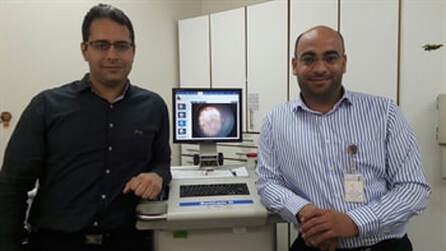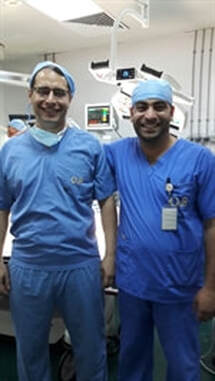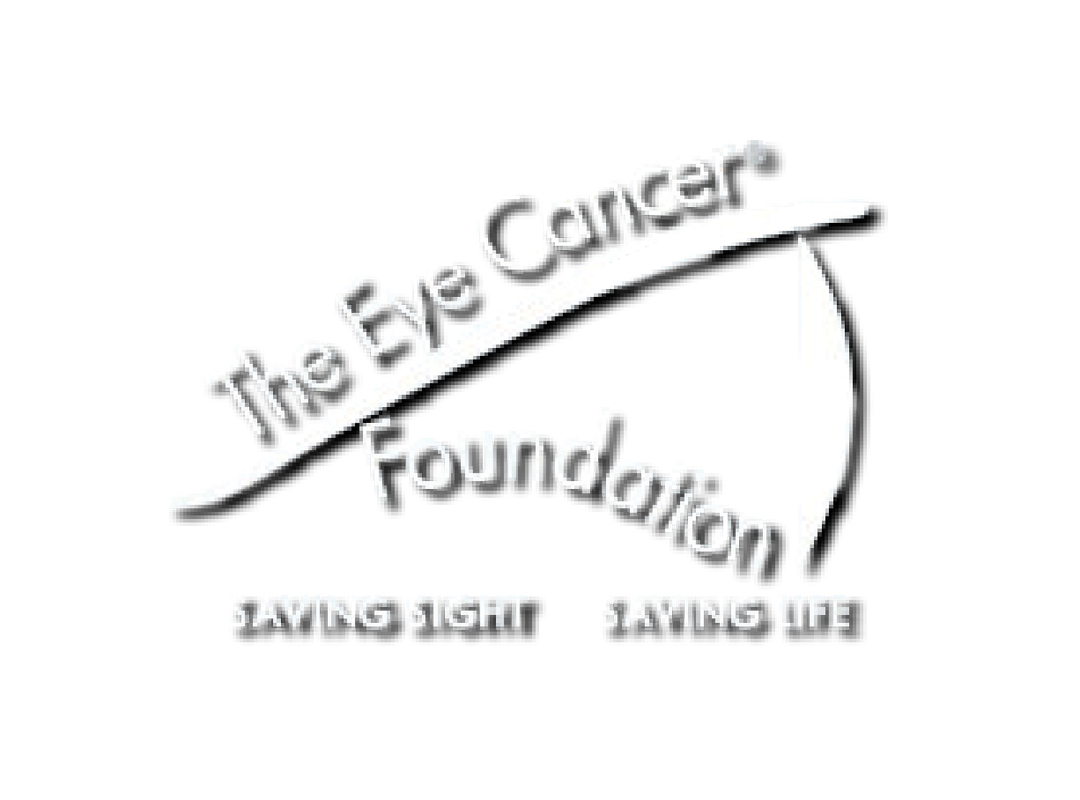Syrian Doctor Grateful for ECF Fellowship Training
Ata Rajeh, MD recently completed fellowship training in ocular oncology under Yacoub Yousef, MD of Jordan. The training was supported by The Eye Cancer Foundation (ECF).
ECF fellowships are available to candidates from unserved or underserved countries. Once the doctors complete their six months of training, they agree to return to their home country to start or participate in eye cancer treatment for the unserved.
ECF fellowships are available to candidates from unserved or underserved countries. Once the doctors complete their six months of training, they agree to return to their home country to start or participate in eye cancer treatment for the unserved.
Rajeh is from the war-torn country of Syria. His fellowship ran from April to October 2016 at the King Hussein Cancer Center in Amman, Jordan. Dr. Yacoub Yousef and his team supervised Rajeh’s training. Rajeh had the opportunity to learn from a wide range of highly trained medical professionals, including retina specialists, pediatric ophthalmologists, oculoplastic surgeons, pediatric oncologists, radiotherapists, and low vision aid specialists.
Eye Cancer Foundation fellowships offer doctors specialized training in the treatment of retinoblastoma they could never receive in their home country. Retinoblastoma is the most common eye cancer in children and affects approximately 8,200 children each year. The incidence rate is somewhat higher in developing countries, where most of the children eventually succumb to metastatic retinoblastoma. In contrast, there exists a better than 96% survival rate in developed countries like the USA. Early diagnosis and treatment is key to saving retinoblastoma patients’ lives and their sight.
|
During his six months at King Hussein Cancer Center, Rajeh was exposed to full-range, comprehensive management of more than 100 retinoblastoma patients who were diagnosed at different stages in the disease. This allowed him to observe a wide variety of treatment regimens, including systemic chemotherapy, intraocular chemotherapy, intra-arterial systemic chemotherapy, focal consolidation therapies (e.g. laser and “freezing” cryotherapy), radioactive plaque therapy, external beam radiation therapy, and when necessary – removal of cancer-filled eyes.
In addition to his interaction with patients, Rajeh also accomplished research alongside Dr. Yousef. His primary project related to the management of conjunctival squamous cell carcinoma in Jordan. “I am very excited about the results of our research," Rajeh said. “I am the first author, and this manuscript will soon be submitted to a peer reviewed journal.” Rajeh received invaluable training among the millions of displaced Syrians currently in Jordon. He hopes to open the first Retinoblastoma Center in Syria, and he expresses his deep gratitude to The Eye Cancer Foundation for the opportunity. |
“I am going to work on building my experience in the field of ocular oncology, in the retinoblastoma field in specific,” he said in a recent letter to The Eye Cancer Foundation Board. “When I get home, I will work to establish a service that doesn’t exist in my home country. The Eye Cancer Foundation Fellowship King Hussein Cancer Center will help me a lot in gaining my aim.”
For more information on The Eye Cancer Foundation Fellowships, including how to apply, click HERE.
Receive the latest news and opportunities from The Eye Cancer Foundation. Please fill out the form below.
For more information on The Eye Cancer Foundation Fellowships, including how to apply, click HERE.
Receive the latest news and opportunities from The Eye Cancer Foundation. Please fill out the form below.




